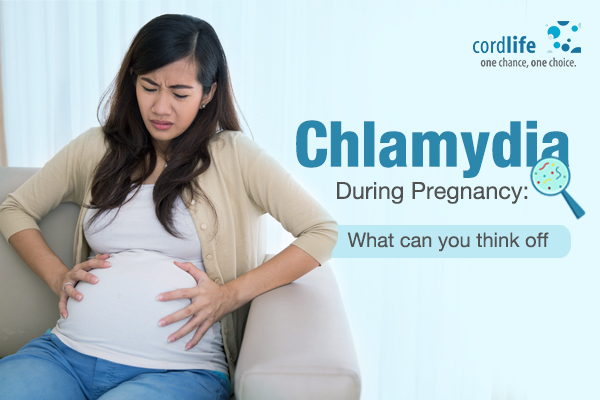Table of Contents
Chlamydia during pregnancy is a bacterial infection that can take place between you and your partner when both of you are in unprotected vaginal, oral, or anal sexual contact. This infection can spread through the mouth, reproductive organs, rectum, and urethra to the womb, ovaries, or fallopian tube, thus making your pregnancy difficult. In fact, the cervix is the most common place, through which you might get infected with the chlamydia bacteria, leaving you with symptoms like:
- Pain while having sex
- Pain while you’re urinating
- Bleeding between periods and after you’ve had sex
According to the Centers for Disease Control and Prevention (CDC), in 2018, approximately 4 million of you may have a chance of getting chlamydia every year. Both you and your partner (women and men) can get affected by the signs of chlamydia. And chlamydia symptoms in men are:
- Burning sensation while urination
- Pain in the lower abdomen and testicles
- Yellow or green discharge from the penis
Visiting the doctor and having a 2 weeks course of antibiotics may reduce the risks. In fact, the chances of infertility might even reduce if the problem treats early.
In What Way Can Chlamydia Affect Pregnancy?
However, remember during pregnancy your immunity is weak and it’s easy for you to contract sexually Transmitted Infections like Syphilis, chlamydia, Hepatitis B and so and so forth. Amongst these, chlamydia during pregnancy, is a commonly reported sexually transmitted infection.
Untreated chlamydia during pregnancy may link to:
- Preterm or premature rupture of the membranes
- Preterm labour and birth
- Intrauterine growth retardation
- Low birth weight
- Postpartum endometritis.
In What Way Can Chlamydia Affect Your Baby?
It is also possible for Chlamydia infection to pass from mother to baby during vaginal delivery. Well! If you get infected with Chlamydia, while you’re in labour, there’s a chance that your baby might also contract it from you, while passing through the birth canal. In fact, half of the babies, who’re born vaginally or via an emergency C- section have expected to get the infection. There is a chance that a few weeks after he or she’s born, your baby may develop an eye infection or conjunctivitis, redness in the eyes, swelling as well as discharge. There are also some newborns who may develop lung infections.
How To Treat Chlamydia In Pregnancy?
You’re more at risk of contracting chlamydia infection and STI during your pregnancy if you’re under 25 years old. Your partner would also need treatment for Chlamydia.
CDC would always suggest you get tested for chlamydia infection during your first prenatal visit and again during the third trimester as a part of the treatment. To test for chlamydia infection your healthcare practitioner might take a urine sample to the lab or send a swab from your vagina or cervix. After getting tested for Chlamydia infection during pregnancy you can take a 7-day course of antibiotics as per your doctor’s advice. Also ensure that after the completion of the course of antibiotics both you and your partner can restrain yourself from sexual intercourse for a few weeks or months. Moreover after 3 or 4 weeks get yourself tested again to know whether the infection is gone or not.
Otherwise, to avoid getting chlamydia symptoms in you and your partner, have safe sex. Also, don’t forget to get yourself tested for this infection if you’ve chances of getting exposed to chlamydia and other STIs.
To get some more information on pregnancy, postpartum, and the benefits of cord blood banking, follow our blog page.
